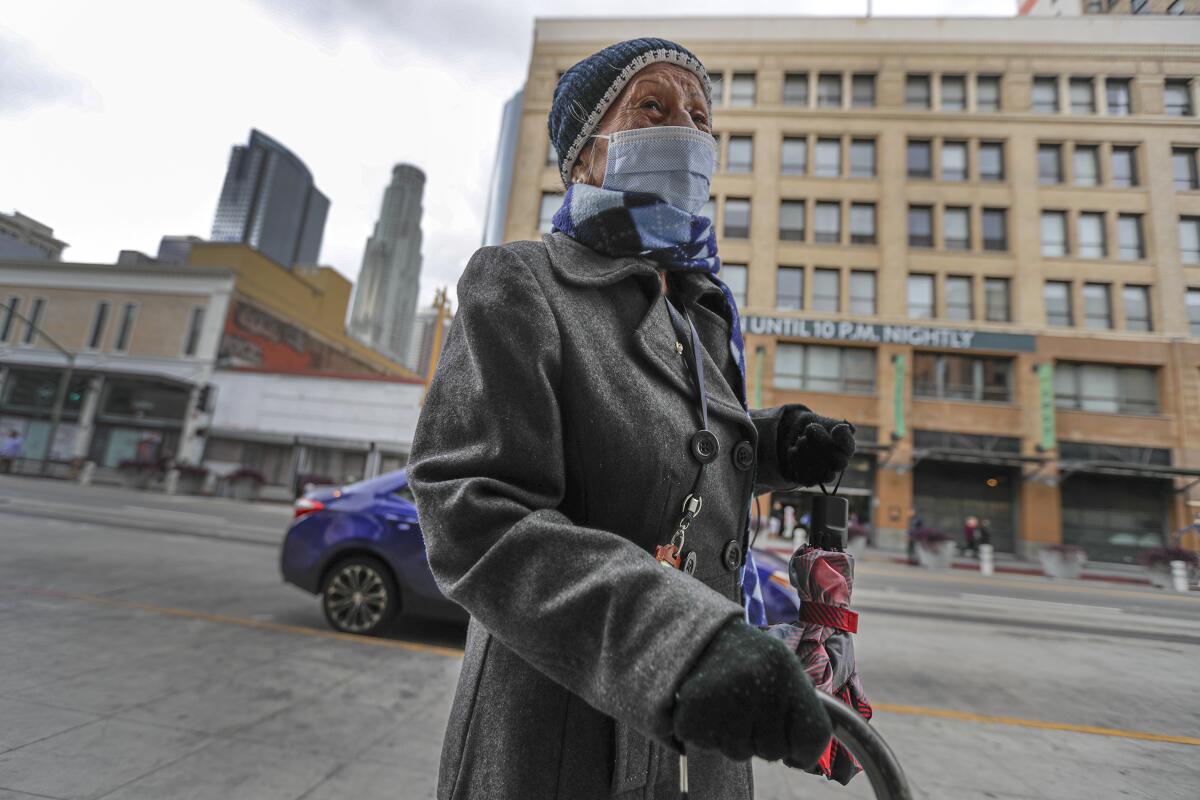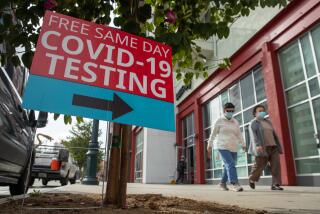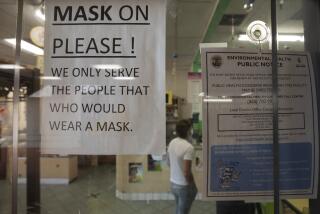L.A. County says assume coronavirus is now in your community. Here is what you need to know

Coronavirus continued its spread across L.A. County on Monday.
The number of coronavirus cases in the county increased considerably Monday to 94, with 41 new cases in the last 48 hours.
Los Angeles County Public Health Department Director Barbara Ferrer said everyone should assume there are coronavirus patients in their neighborhood, some of whom might not know they’re sick.
“Residents at this point must assume that there may be people who are infected everywhere in the county,” she said.
Officials attributed the increase in cases to more testing but believe the number of cases will keep rising.
Here is the latest:
NEW CLOSURES: L.A. County officials announced the closure of all bars, fitness centers and movie theaters and directed restaurants to move to takeout only. The directive applies to all 88 cities and unincorporated regions of the county, including Los Angeles, which issued a similar directive Sunday. Officials are also banning gatherings of more than 50 people, following a recommendation made by the Centers for Disease Control and Prevention on Sunday.
25 NEW CASES: Ferrer also announced 25 new confirmed cases today. At least 15 of the cases are probably due to community transmission. A breakdown:
— 5 unknown source
— 1 recent travel
— 1 close personal contact
— 17 require more investigation
— 1 reported from Pasadena Public Health Department
SCHOOLS: Los Angeles Unified, which serves about 670,000 children and adults, shut down its 900 campuses beginning Monday morning. Many other county schools are also closed. In Los Angeles, family resource centers are not scheduled to open until Wednesday, which leaves families to improvise coping strategies. By early Monday morning, the district had posted a call for paid volunteers from among the school system’s nearly 78,000 workers.
L..A. CITY RESTRICTIONS:
Closed
- All movie theaters, live performance venues, bowling alleys and arcades
- All gyms and fitness centers
- All bars and nightclubs that do not serve food
- All private social clubs
- In addition, all restaurants and retail food facilities will be prohibited from serving food to dine-in customers.
Exceptions
- Restaurants, as well as bars and nightclubs that serve food, may continue to prepare and offer food to customers via delivery service or takeout.
- Houses of worship are urged to limit large gatherings on their premises and to explore and implement ways to practice their respective faiths while observing “social distancing” practices.
- Cafeterias in hospitals, nursing homes or similar facilities will be allowed to continue operations.
- Grocery stores, pharmacies and food banks will also be allowed to continue operations.
ON THE STREET: With sweeping closures of entertainment complexes, dine-in restaurants and bars, retail life in L.A. changed rapidly on Monday. Most of the food vendors inside the Grand Central Market were closed or had a few customers standing line ordering food to go.
Stools and metal chairs sat atop tables as staff walked around sanitizing them. Minerva Torres, 47, who runs a produce market, said she understands the concerns about the coronavirus but doesn’t think businesses should be forced to close. “We lose money and we have bills to pay,” she said. “I have kids in universities that I need to help.”
Torres said that when she heard about the mayor’s emergency orders she didn’t know how it would affect her given that most vendors inside the market sell food. “I don’t own a restaurant,” she said. “I have a produce market that people will depend on.”
More to Read
Sign up for Essential California
The most important California stories and recommendations in your inbox every morning.
You may occasionally receive promotional content from the Los Angeles Times.














